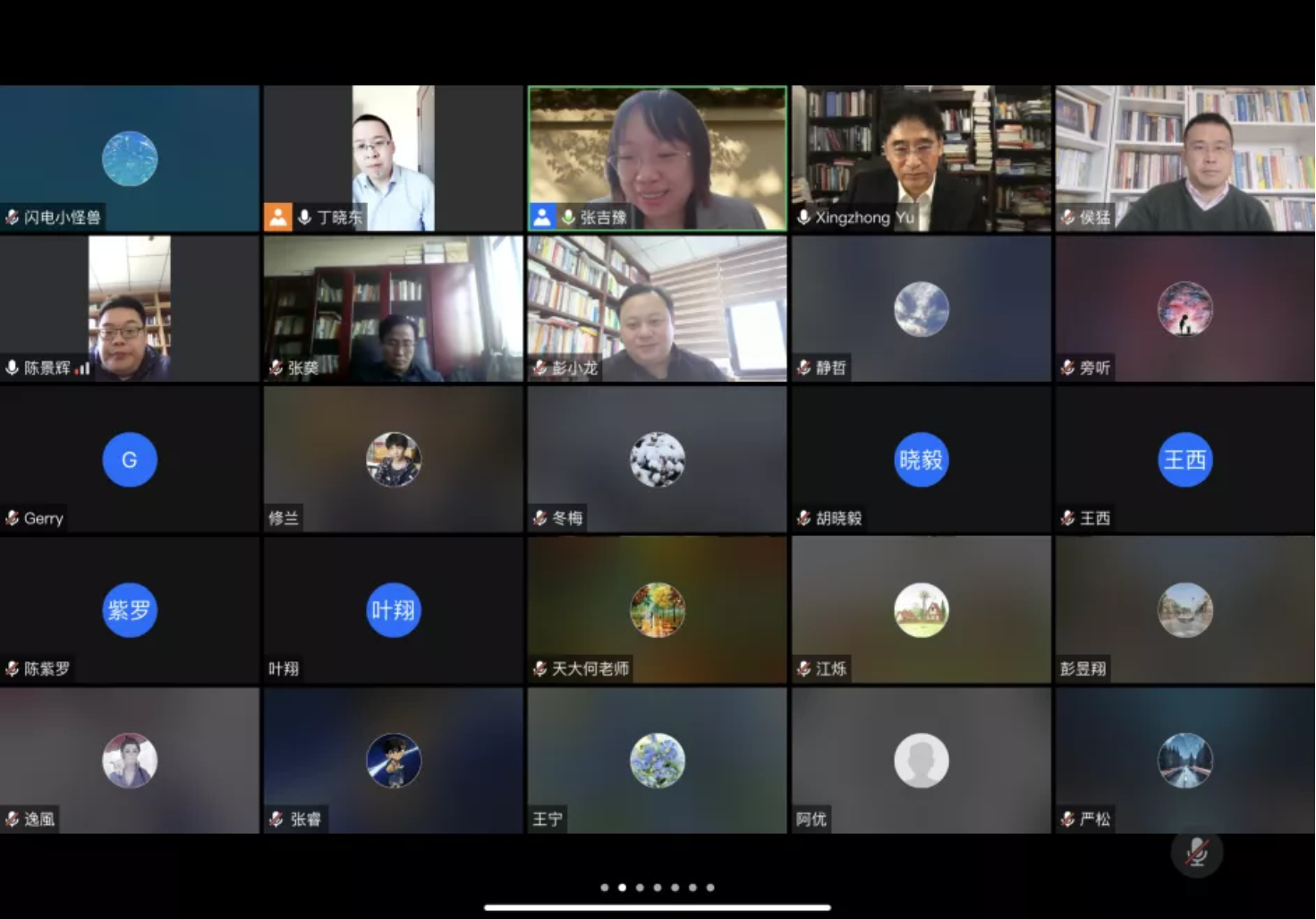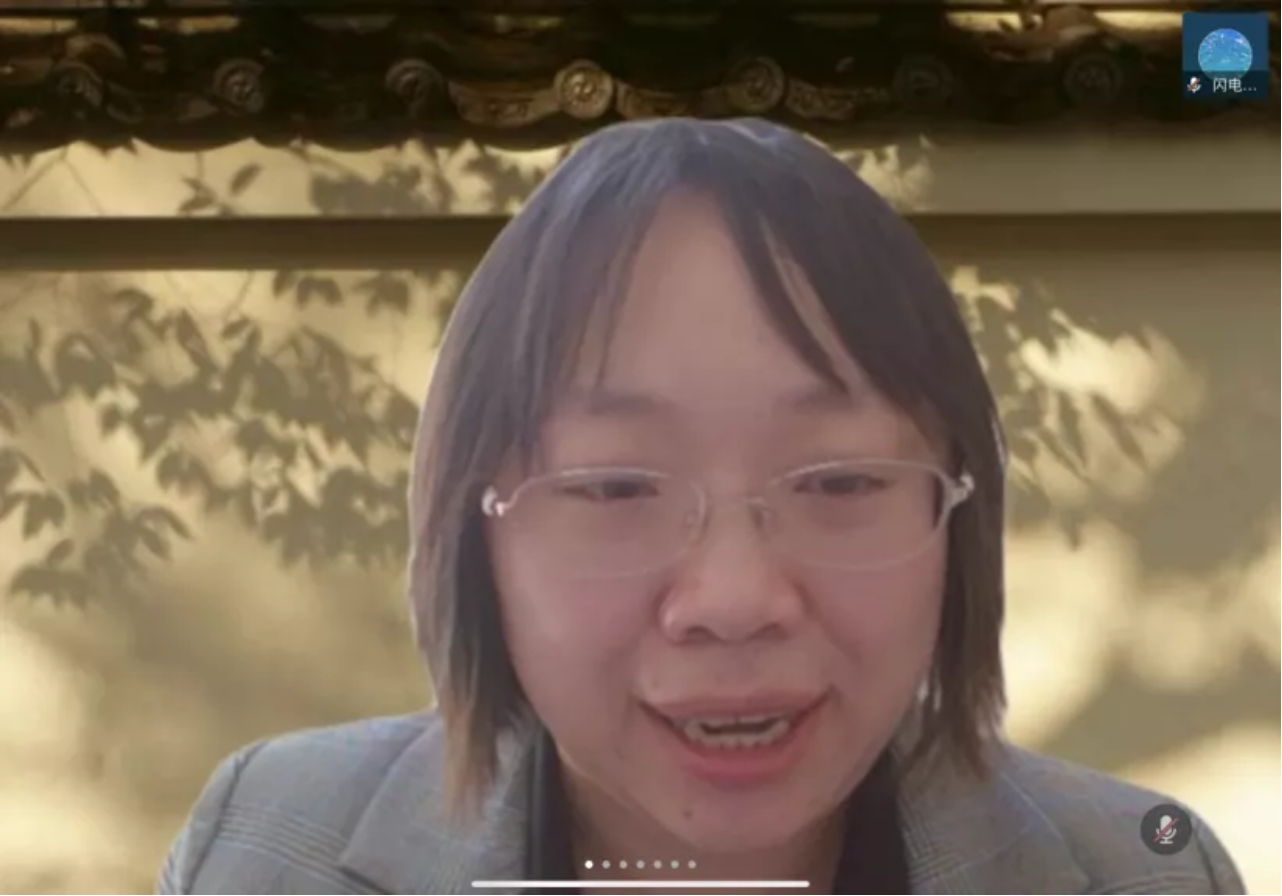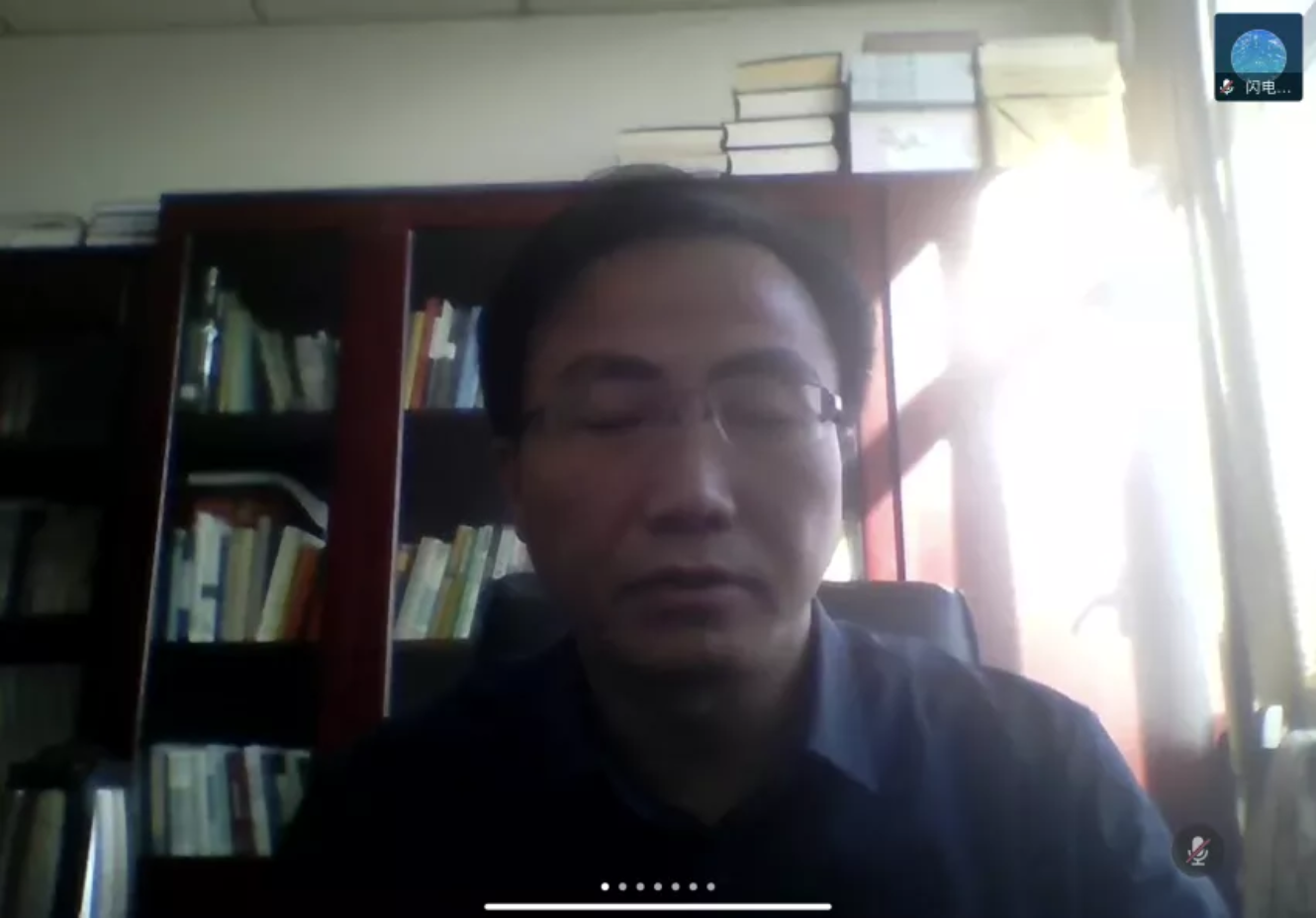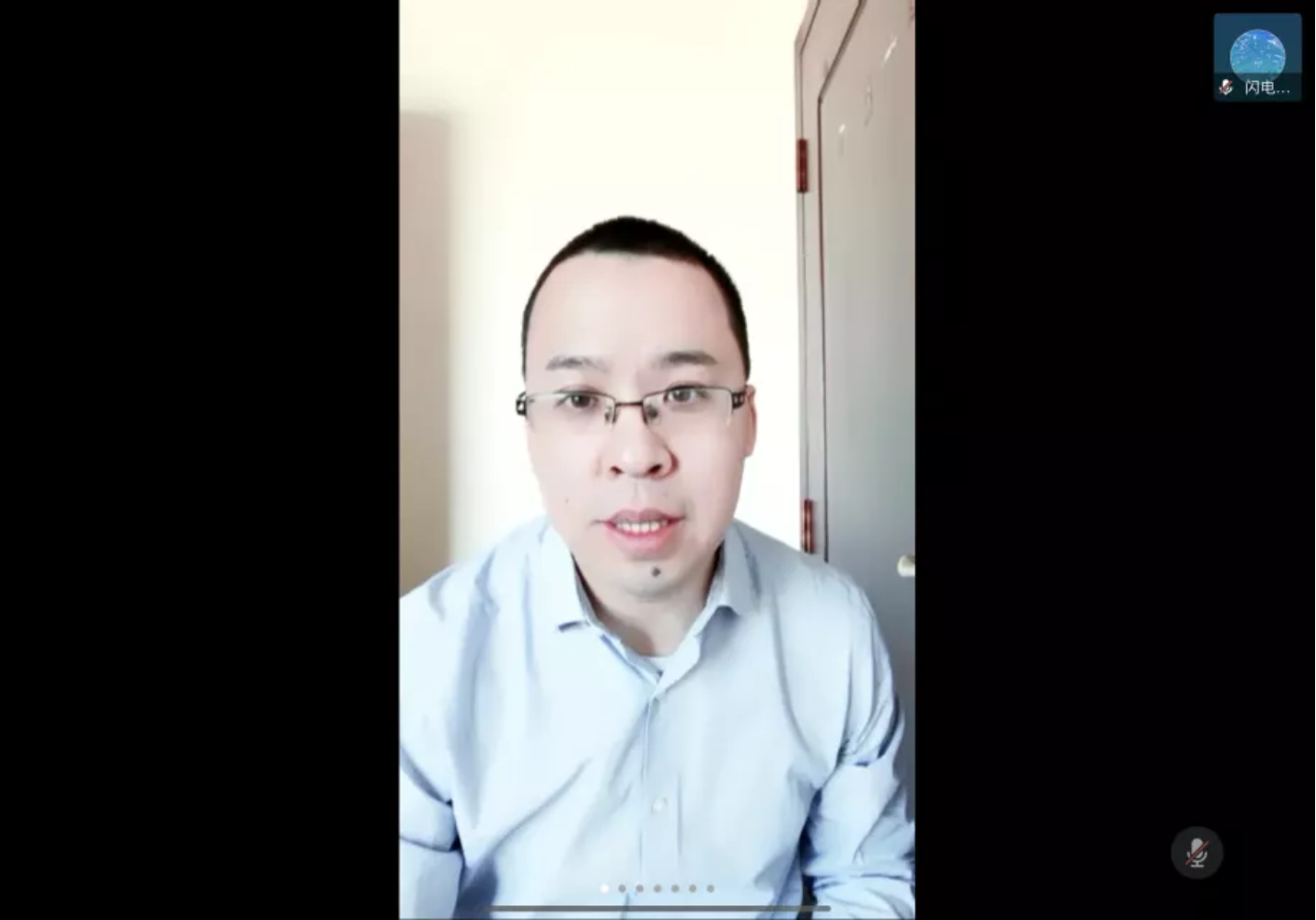Professor Yu Xingzhong Gave a Lecture on Data Space, Data Trust and Normative Systems
time:2021-02-01On the morning of December 15, 2020, invited by Law and Technology Institute of Renmin University of China and Legal Science Teaching and Research Section of Law School of Renmin University of China, Yu Xingzhong, Professor of Chinese Law, Anthony W. and Lulu C. Wang, Cornell University Law School carried out academic exchanges with our school’s teachers and students. He gave a wonderful webinar entitled "Data Space, Data Trust and Normative Systems", which attracted more than 160 listeners to participate in this activity.

This lecture was the seventh in a series of lectures held by Law and Technology Institute of Renmin University of China in the fall semester of 2020 to celebrate the 70th anniversary of the Law School of Renmin University of China. Professor Zhang Yan, Deputy Dean of Law School of Renmin University of China, Chen Jinghui, Professor of Law School of Renmin University of China, Hou Meng, Professor of Law School of Renmin University of China, Associate Professor Zhang Jiyu, Executive Director of Law and Technology Institute of Renmin University of China, Associate Professor Ding Xiaodong, Vice President of Law and Technology Institute of Renmin University of China, Peng Xiaolong, Associate Professor of Law School of Renmin University of China attended the webinar.

The webinar was chaired by Associate Professor Zhang Jiyu, Executive Dean of Law and Technology Institute of Renmin University of China.

Firstly, Professor Yu Xingzhong delivered the keynote speech. The keynote was divided into four parts, including data jurisprudence, data space, data trust, and normative systems.
In the first part, Professor Yu Xingzhong elaborated the concept, basic direction and main categories of data jurisprudence. He pointed out that the research object of Data Jurisprudence is the basic principles and concepts of Data Jurisprudence, such as Data governance. At the same time, he proposed that data jurisprudence is a new concept arising at the historic moment in the data era, which is expected to solve some problems related to data that are difficult to be solved at present.
In the second part, Professor Yu Xingzhong explained the concept of data space. Data space in general sense is a technical concept in data management. What deserves our attention now is the statement of the European Union on data space. When understanding the nature of EU data space, Professor Yu pointed out that EU data space is actually a normative space. In other words, data space and data trust are also closely related. He then introduced a concept from the EU document called "Data Altruism". Data altruism refers to the processing of personal data related to them according to the consent of the parties concerned, or the permission of other data holders to use their non-personal data without seeking remuneration for purposes of the general interest, such as scientific research purposes or the improvement of public services.
In the third part, Professor Yu mentioned data trust, which is a way of managing data and making decisions about data in a manner similar to the way trusts have traditionally been used to manage and make decisions about other forms of assets, such as land trusts that manage land on behalf of local communities.
Finally, Professor Yu pointed out that a normative system refers to a set of norms for evaluating and guiding people's behavior. Data space and data specification coexist and grow together, and specification space and specification system interact with each other.
During the guest speaker segment, Associate Professor Zhang Jiyu, from Renmin University of China Law School, first of all thanked Professor Yu Xingzhong for his lecture.

Professor Zhang Yan, Deputy Dean of the Law School of Renmin University of China, asked Professor Yu, First, whether data itself should be the subject of research on general theoretical issues, and if so, what kind of classification should be made, including social law or standard law. The second is the difference between data space and cyberspace. Thirdly, the normative characteristics of data are not similar to the norms in the sense of traditional jurisprudence, and are more inclined to social rules. The normative attributes of data may become the source of norms in the network world, but they are not enough to become the source of norms in the physics-dominated legal world.

Professor Chen Jinghui of Renmin University of China Law School talked about the typology of data jurisprudence/data jurisprudence research background. At present, when it comes to legal and technological issues, there are mainly two kinds of discussion positions: the first is the discussion on methods, whether the scientific and technological achievements should be regarded as supplementary methods (such as big data trials) or alternative methods. The second is the discussion on solutions, how to face the challenges brought about by technological change, including ethical challenges and governance challenges, and to what extent the problems will pose challenges. Professor Chen believes that if the problem can be solved within the framework of departmental law, then it will not pose a challenge.

Professor Hou Meng of Renmin University of China Law School pointed out that the concept of data jurisprudence is a normative integration of the existing concepts, which is a step forward of The Times. However, Professor Hou Meng believed that the concept of "legal theory of data" contains a broader scope and is more suitable than "data jurisprudence". Then, Professor Hou Meng raised questions about the concept of data trust: what is the influence of data trust on law and whether there should be separate legislation on data trust? Finally, Professor Hou Meng put forward his own views on the data space, and asked whether the formation of the data normative system should first be the social normative system/technical normative system, and then the legal normative system.

Associate Professor Ding Xiaodong, deputy dean Law and Technology Institute of Renmin University of China, commented on three aspects: data space, data trust and data jurisprudence. In his opinion, the data space problem is similar to the expansion and competition of countries for traditional physical space (land) in the age of great navigation. When talking about the data trust, he mentioned that the fiduciary law framework can be used to protect the data law, but there are still some inadapts. Finally, he said that he was inspired by the concept of data jurisprudence, and today's jurisprudence research needs to break through and innovate.

Associate Professor Peng Xiaolong, from Law School of Renmin University of China, proposed that the concept of data jurisprudence conforms to the development of the times and brings new inspirations and ways of thinking to jurisprudence. He pointed that that the concepts of data jurisprudence and data jurisprudence should be distinguished. At the same time, in the process of developing data jurisprudence, it is imperative for legal theorists to identify whether new challenges can be solved within the existing framework. Associate Professor Peng Xiaolong also put forward his own thoughts on the concept of normative system.
Finally, Professor Yu Xingzhong answered some questions raised by the reviewers. After more than two hours of lecturing and discussion, the webinar came to a successful end in applause.

